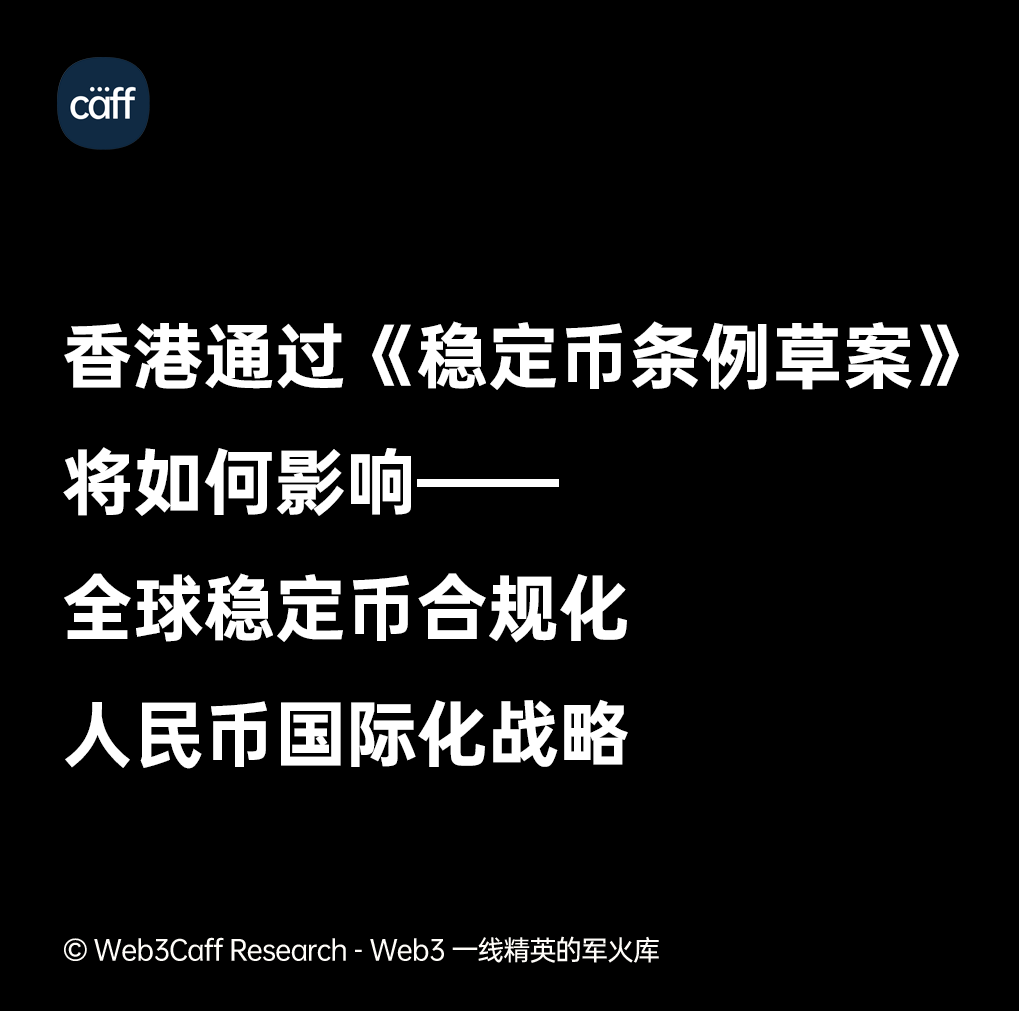What impact will Hong Kong’s "Stablecoin Bill" have on global stablecoin compliance and the internationalization strategy of the Renminbi?
Following the landmark launch of the "GENIUS" stablecoin bill agenda in the United States on May 20, Hong Kong, a forefront hub of global financial innovation, also passed the "Stablecoin Bill" (hereinafter referred to as the "Bill") on the evening of May 21 through the third reading in the Hong Kong Legislative Council. This Bill was submitted by the Hong Kong Special Administrative Region Government and is set to take effect by the end of 2024.
Once the Chief Executive of Hong Kong signs and the Bill is published in the Gazette, it will officially come into force.
This marks Hong Kong’s legislative regulation of stablecoins ahead of the United States, positioning the Hong Kong region as a leading innovation area in global stablecoin compliance. At the current pace, we expect to see compliant Hong Kong stablecoins emerge by late 2025.
Let’s quickly review the key details of the Bill:
(1) Regulatory Targets and Scope
Focuses on "designated stablecoins" pegged to a single or multiple fiat currencies, covering stablecoins issued in Hong Kong as well as foreign-issued stablecoins promoted to the Hong Kong public (such as stablecoins pegged to the Hong Kong dollar). The Monetary Authority has the power to dynamically designate other types of stablecoins for regulation through Gazette notices.
(2) Licensing System and Licensee Requirements
Entry Threshold: Licensees must be incorporated entities in Hong Kong with a minimum paid-up capital of HKD 25 million. Controllers and senior management must be "fit and proper" persons with relevant knowledge and experience;
Reserve and Redemption Mechanism: The market value of reserve assets must always be no less than the circulating face value, ensuring holders can redeem at face value. Redemption procedures, fees, and other details must be disclosed;
Risk Management and Compliance: Licensees must establish sound risk control and anti-money laundering systems, properly manage business risks, segregate reserve assets, and disclose regularly.
(3) Ongoing Supervision and Penalties
Routine Supervision: The Monetary Authority may require licensees to submit documents, issue directives, and supervise business activities throughout;
Penalties for Violations: Unlicensed activities face a maximum fine of HKD 5 million and imprisonment up to 7 years; fraudulent conduct faces a maximum fine of HKD 10 million and imprisonment up to 10 years;
Transition Arrangements: Issuers operating before the Bill’s effective date may apply for a 6-month transition period during which they must submit license applications and commit to compliance; otherwise, orderly winding down is required.
(4) Alignment with International Standards
Following recommendations from the Financial Stability Board and referencing experiences from the EU, Singapore, and others, the Bill establishes an open licensing regime emphasizing ongoing supervision and risk prevention, consistent with international regulatory trends.
Analysis and Outlook on the Bill
✜ The preview section has ended; the remaining in-depth content is here 👇
https://t.co/XXUK1S0feu
